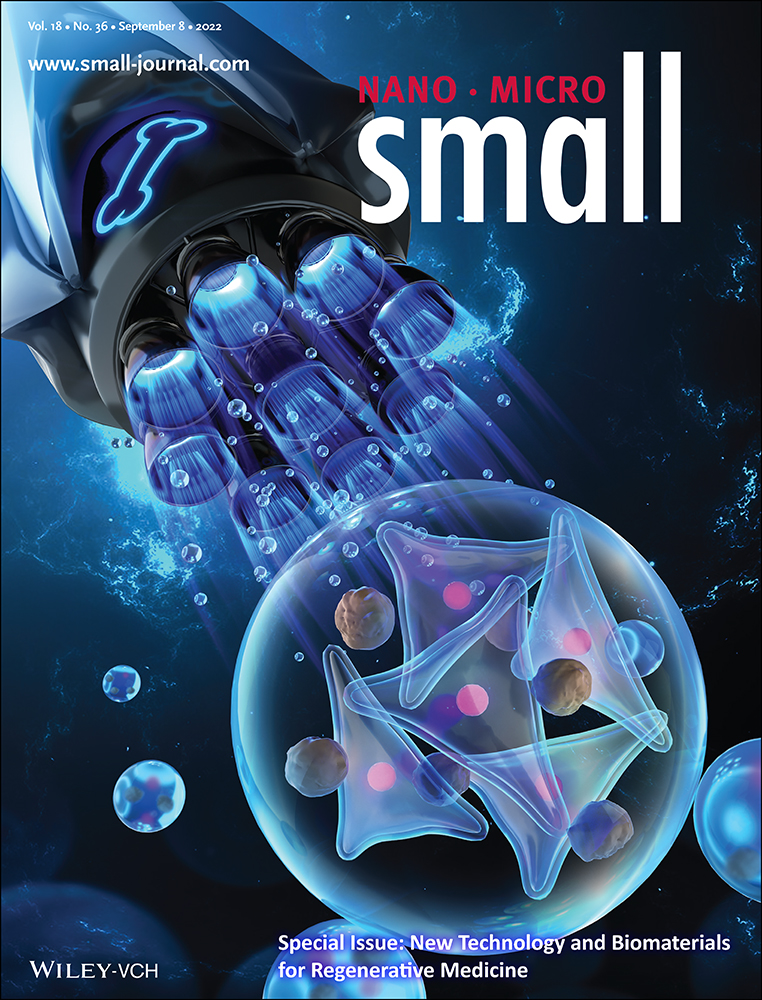Biomimic Trained Immunity-MSCs Delivery Microcarriers for Acute Liver Failure Regeneration
Abstract
Mesenchymal stem cells (MSCs) have a demonstrated value for acute liver failure (ALF) regeneration, while their delivery stratagems with long-term biological functions, low immune response, and high biocompatibility are still a challenge. Here, a lipopolysaccharide (LPS)-loaded photoresponsive cryogel porous microcarrier (CPM) for MSCs delivery and colonization is presented to promote defect liver regeneration. The CPMs are fabricated with graphene oxide, poly(N-isopropylacrylamide), and gelatin methacrylate (GelMA) via droplet microfluidic technology and a gradient-cooling procedure. Benefitting from the biocompatible GelMA component and the porous microstructure of the CPMs, MSCs can be nondestructively captured and abundantly delivered. Because the LPS can be released from the CPMs under NIR irradiation, the delivered MSCs are imparted with the feature of “trained immunity.” Thus, when the MSCs-laden CPMs are tailored into the liver matched patches by bioprinting and applied in ALF rats, they display superior anti-inflammatory and more significant liver regeneration properties than the untrained MSCs. These features make the CPMs an excellent MSCs delivery system for clinical applications in tissue repair.
Conflict of Interest
The authors declare no conflict of interest.
Open Research
Data Availability Statement
Research data are not shared.




